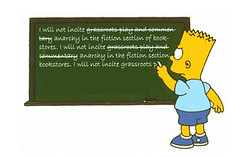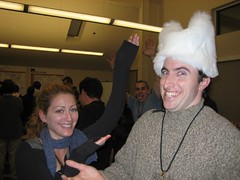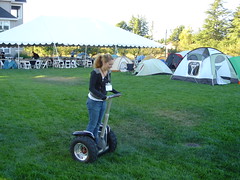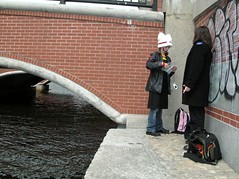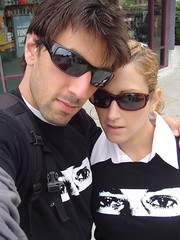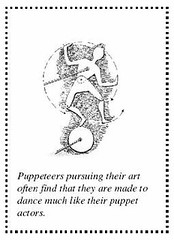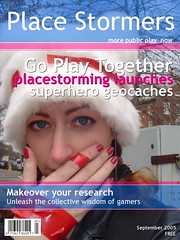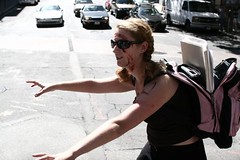I will not incite grassroots play and commentary anarchy in the fiction section of bookstores. I will not incite grassroots play and commentary anarchy in the fiction section of bookstores. I will not incite grassroots play and commentary anarchy in the fiction section of bookstores. I will not incite grassroots play and commentary anarchy in the fiction section of bookstores. I will not incite grassroots play and commentary anarchy in the fiction section of bookstores. I will not incite grassroots play and commentary anarchy in the fiction section of bookstores. I will not incite grassroots play and commentary anarchy in the fiction section of bookstores. I will not incite grassroots play and commentary anarchy in the fiction section of bookstores. I will not incite grassroots play and commentary anarchy in the fiction section of bookstores. I will not incite grassroots play and commentary anarchy in the fiction section of bookstores.
Sunday, August 21, 2005
Bart laments his role in the Ministry of Reshelving.
I'm not a werewolf
"I'm a villager! I swear! " (No, Zach was a totally a werewolf. Meanwhile, I was lynched by an angry mob, the entire circle pounding the tables and chanting "Kill! Kill! Kill!" Sigh.) Saturday night, we played Werewolf 'til 4:30 AM. So basically, there is a proposition on the table to officially rename FOOcamp 2006 WEREWOLFcamp 2006.
Also on the FOOcamp Gameplay scene: earlier in the evening I organized a Zen Scavenger Hunt. danah boyd conspired with me to create a FOO-cific scavenger hunt list worth of the genius minds gathered up here at O'Reilly's for the weekend. For those of you who haven't experienced the experience of my ZSH project, here's how it works: You collect your objects and THEN we give you the list. You have to creatively hack and mod your objects and design clever demo's and performances to persuade the judges that the objects you already have is a perfect match for our list. Here are the rules and the list from last night... How would you have done?
Social Play & SuperGaming!
The Zen Scavenger Hunt / FOOcamp 2005
Please find the following objects:
A problem (2 points)
A non-scalable solution to object #1 (3 points)
A scalable solution to object #1 (6 points)
A new mobile Web 2.0 platform (demo, please) (3 points)
An experiment in nanotech bioengineering gone bad (3 points)
A self-replicating machine (demo, please) (7 points)
A passenger amenity from the first commercial space flight shuttle (2 points)
A working tele-operated object (demo, please) (7 points)
A tool for collaboration (3 points)
A relic from the battle between the monkeys and the robots. (P.S. Who won?) (3 points
Edible computing (demo, please) (6 points)
FOObarred TM Anti-Surveillance Device (4 points)
Rules:
You have 45 minutes to find these objects.
You can only use the objects your team already has—no trading, no substitutions.
You can hack and mod your objects any way you want.
Your success in finding these objects will be judged by other teams, based on your live demonstrations and explanations.
In the case of any judging disputes, puppetmasters have the final vote.
In the case of a tie, teams will play a 60-second death-defying, single-object tiebreaker round.
(In this case, we did have a tiebreaker: "a thing of exquisite beauty.")
Coming soon: A flickr set from the ZSH...
Saturday, August 20, 2005
no sleep til sebastopol
FOOcamp rules.
Highlights so far include Segway rides, non-scalable introduction ceremonies, brainstorming sessions and improvised talks on biomimetic design, open source biology, "You are the platfom-- functional body modification", gaming as ecologically sustainable decadence (that was me, of course), meeting and hanging with my favorite Technorati and Flickr and boingboing masterminds, Are You a Werewolf? games until 5 AM, my first night sleeping outdoors in a tent (not that much sleep though--see aforementioned Werewolf games!), learning more about what O'Reilly Media does and wants to do more of(love it), and making smores with many more wicked smart folks. Still to come: danah boyd and I lead the first (annual?) FooCamp Zen Scavenger hunt...
Thursday, August 18, 2005
a minor statement on avant gaming
I believe:
Games are the dominant art form of the 21st century. Not just videogames (but those too). All games.
We should make benevolent games for all spaces and all technologies.
There should be more benevolent gameplay in public spaces.
Many people find public gameplay threatening. This is not a reason not to play games. It is a reason to play more. It is also a reason to make gameplay transparent, so others will not be confused or alarmed by what you are doing.
Games are serious. Some people dismiss them as “pointless,” but they are blind to the power of pointlessness. The power of games is in their intrinsic pleasure. The nature of games is not to point. The nature of games it to experience. And experiences can be extraordinarily powerful things.
Games are a persuasive platform. Games are a self-expressive platform.
Collective gameplay helps us gather the collective wisdom of crowds.
Collective gameplay can mobilize and harness the benevolent power of the public.
There should be more bottom-up decision-making in public spaces. Massively multiplayer collaborative gameplay may help achieve this.
There should be more folksonomy in public spaces. Massively multiplayer collaborative gameplay may help achieve this, as well.
We should define public spaces as the spaces where you can find the public. Rarely will you find the public in public plazas.
We should treat privatized spaces that open their doors to the public, make money off the public, and serve for better or for worse as the primary public and social spheres of our society, more like public spaces.
When powerful and benevolent phenomena emerge online, we should conduct experiments to see if they can be translated into a real-world power, as well.
Just in case anyone was wondering.
Sunday, August 14, 2005
the ministry of reshelving
This week, we launched the Ministry of Reshelving project. My partners in crime as founding members of the ministry: George, Kiyash, and Monica.
This weekend we relocated 19 copies of George Orwell's 1984 in four different bookstores in Palo Alto, San Francisco, and Berkeley. It was high stealth adventure.
You are invited to join our efforts.
How to Serve the Ministry of Reshelving
1. Select a local bookstore to carry out your reshelving activities.
2. Download and print "This book has been relocated by the Ministry of Reshelving" bookmarks and "All copies of 1984 have been relocated" notecards to take with you to the bookstore. Or make your own. We recommend bringing a notecard and 5-10 bookmarks to each store.
3. Go to the bookstore and locate its copies of George Orwell's 1984. Unless the Ministry of Reshelving has already visited this bookstore, it is probably currently incorrectly classified as "Fiction" or "Literature."
4. Discreetly move all copies of 1984 to a more suitable section, such as "Current Events", "Politics", "History", "True Crime", or "New Non-Fiction."
5. Insert a Ministry of Reshelving bookmark into each copy of any book you have moved. Leave a notecard in the empty space the books once occupied.
6. If you spot other incorrectly classified books, feel free to relocate them.
7. Please report all reshelving efforts to the Ministry. Email your store name, location, # of 1984 copies reshelved, and any other reshelving activities conducted, to reshelving @ avantgame.com. Photos of your mission can be uploaded to Flickr, tagged as "reshelving", and submitted to the Ministry of Reshelving group.
Our goal is to relocate one thousand nine hundred and eighty-four copies, and to complete successful reshelving of 1984 in all 50 United States. Global contributions are welcome.
Note: this project is not a critique of bookstore culture, the state of the shelving industry, or even of pervasive government surveillance. It is merely an observation that 2 + 2 = 5, and 5 is no longer fiction.
UPDATE:
Many thanks to everyone for their feedback on this project.
We at the Ministry of Reshelving support all efforts to properly classify fiction and nonfiction texts. So here are some alternative (or complementary) tactics.
*Ask to speak to a bookstore manager, perhaps a time when the bookstore is not busy. Introduce yourself as a representative of the Ministry and simply suggest the relocation. Do not relocate any books. Simply have a friendly conversation. Perhaps have a card referring the manager to the Ministry of Reshelving Flickr group.
*Mod the current Ministry bookmarks to SUGGEST relocation of the books. Insert these in all copies. Do not actually relocate the books.
*Stage a photo of the relocation, and then return the books to their original location. This might not be revolution, but it is a rehearsal for the revolution.
*Create a notecard to leave at the bookstore in the section you think 1984 should be properly shelved. The notecard could say "Sorry! There are no more copies of George Orwell's 1984 in the __________ section. Additional copies are located in the fiction and literature section."
*Before you conduct your 1984 reshelving, look around the store for a few books left out by other customers and put them back where they belong. Do a bit of 'traditional' reshelving on behalf of the employees. Then do your 1984 reshelving.
These mods are designed to address people's concerns with the impact of the project on customers and bookstore employees and owners. I'm 100% committed to making these kinds of experiments as sociable as possible, while still confronting the issues of: Where is it appropriate for the public to play, to intervene, to suggest alternatives, to tag, to reclassify, to be expressive? It is clear to me that many people do not feel that bookstores are a proper location for such play and intervention. I very much disagree, but I am learning much from their comments and reactions.
Update: Bart Simpson laments his role in the Ministry of Reshelving.
Update: If you would like to understand the motivations of this project better, why not read a minor statement on avant gaming?
Update: Comments have been suspended on this blog in accordance with Godwin's law. The Ministry of Reshelving, however, continues its work.
Update: Comments reopened. A further statement on the reshelving project appears here.
Wednesday, August 10, 2005
the puppet master problem
Earlier this summer, I stumbled upon an elegant, and wisely captioned, drawing in the August issue of the San Francisco Bay Area Puppeteer's Guild newsletter. It is the perfect expression of the tricky, collaborative relationship between puppet masters and players of a puppet mastered game.
I'm currently working on an essay called "The Puppet Master Problem: Design for Mission-Based, Real-World Gaming." It has much revising and editing ahead before it (hopefully) is published in a new MIT Press collection this spring. So ignore the sometimes clunky prose. But I wanted to post an excerpt here, to get some of these thoughts into the collective consciousness of my fellow gamers.
*
(...)
I made my debut as a puppet master (PM) on January 19, 2002 as the lead writer and mission designer for an 80-player Go Game in the North Beach neighborhood of San Francisco—a year and a half before I started organizing flash mobs and two and a half years before I took my place behind the curtain of I Love Bees. That day, on the winter-green lawn of a public city park, I experienced a spontaneous rupture in what I had imagined would be a smooth and uncomplicated PM-player dynamic: We tell the players what to do, and they do it. Since that day, the same little Go Game kink has emerged again and again in many different genres and contexts. It is a pattern I now recognize as the highly complex, and consistinently collaborative, texture of a puppet mastered game.
A bit of background: The Go Game is an afternoon-long urban adventure in which competing teams receive clues over their cell phones to specific locations around their city. When players arrive at each location, they download a superhero-themed performance mission: assemble undercover disguises using whatever you can find at a nearby thrift store; make a secret agent waiting for you on the #30 bus laugh by any means necessary (not that you have any idea which of the dozens of people on the bus the secret agent is); conduct a séance on the floor of a crowded café to improve the psychic atmosphere; figure out how to get onto a luxury hotel rooftop and attract as much attention as you can; get a whole barful of strangers singing and dancing along with you to any song you want to play on the jukebox.
That day, we were putting up only the second Go Game ever—Wink Back, Inc. has produced hundreds of games for over 20,000 players across the U.S. since—so as puppet masters, we were still experimenting and making last-minute tweaks to our scripts. Just before the game started, another Go Game writer decided to revise the opening text message I had prepared. My text was a bit dry: “Welcome, superheroes! Press GO when you’re ready to start the game.” We both agreed it would be better to set a more playful mood, so she added a colorful interjection to the welcome message: “Howdy superheroes—hold onto your hats, it’s time to drop your pants and dance! Press GO when you’re ready to start the game.”
I had already forgotten about this minor text change when the teams assembled in Washington Square Park to receive their first set of instructions. I hid in a group of park-goers and watched as the players huddled in small groups, switched on their phones, and downloaded our welcome message. I was waiting for the teams to scatter and hit the streets—once they pressed “GO,” the first round of clues would send each team off in a different direction. But that didn't happen.
Instead, half a dozen players began unbuckling their belts, unzipping their jeans, and showing off their underwear while waving their arms in the air. This caught the attention of other players, who quickly realized—A ha! ‘Drop your pants and dance’—this is our first mission! So they, too, dropped their pants and started dancing. Before long, most of the players were dancing merrily in their underwear. And they were busy taking photos of each other to ‘prove’ their success in completing the mission.
Of course, the opening message “drop your pants and dance” wasn’t a mission at all. But by the time the park was full of pantless performers, my fellow puppet masters and I were already behind our curtain. There was nothing we could do to intervene. We just watched from a distance, with our mouths hanging open.
The first time I told this story at a lecture, an audience member challenged me: “You puppet masters must really get a kick out of manipulating these players to do whatever you want. That must be such a power trip.” But in fact, the opposite was true. We didn’t get a rush of power when the players misinterpreted our simple welcome message. We actually felt completely out of control. We had worked so carefully to craft just the right text for our mission scripts, and yet from the very first moment of gameplay, our actual, effective authority was stripped away. Yes, we could give the players a set of instructions—but clearly we could not predict or dictate how they would read and embody those instructions. We were absolutely not in control of our players’ creative instincts.
In Washington Square Park that day, as the players danced in their underwear, I turned to another puppet master and said, “It’s their game now.” He nodded, and that’s when I realized: No matter what it looked like to outsiders, we were not pulling these players’ strings. Yes, the players were following our commands, but their interpretation of the commands left them fully in charge of their own experience. The scripts had been delivered; the actors were putting on the show. In that moment I realized that the players in a puppet mastered game are not performing objects; they are performing subjects. And that performing subjectivity is never ceded, even in submission to a puppet master’s orders.
The willful subjectivity of a performer is in its own way a kind of self-determination, a co-authorship with the writers. Media critic Thomas De Zengotita acknowledges this when he discusses the flash mob phenomenon as a kind of middle ground between reality and optionality. In the middle of "so many flash mobs… you were being the phenomenon as you were seeing it represented, in real time, unfolding before you. You could see the impact of your role on the national stage in essentially the same way you can see the impact of your button-pressing in a videogame. You were the agent, you were the star" (152). As De Zengotita points out, performing in the public eye gives players an expressive visibility and an audience that provides the same quality of feedback a digital game offers. The audience reaction becomes the new metric, equally capable of giving players a sense of responsibility for a given outcome.
(...)
Tuesday, August 09, 2005
Place Stormers, UNITE!
This is a call to gaming action.
We are collecting and investigating superhero manifestos, and we need your help.
Our focus is on a very unusual kind of superhero, a group of highly advanced thinkers and researchers who are leaving behind cryptic documents that explain their strange missions, superpowers and supertools. We're not sure what these manifestos mean, and we need your help figuring it out.
You are invited to create geocaches for these superhero manifesto in public locations, so that others can find the manifestos and learn more about the superheroes.
You are also invited to choose your favorite manifesto and take on the superhero mission it describes. You can take photographs and show us your superhero interventions.
Of course, if YOU happen to be one of these strange superheroes and you want to share your manifesto with us, you can create one here.
*
The Place Storming database is now live. You are invited to visit the site and download a superhero manifesto.
There are two things you can do with a manifesto:
1) Print it and geocache it in a public location, with the prop of your choosing. (And choose wisely! This prop will become the supertool for superheroes who attempt to accomplish the mission you are geocaching.)
2) Print the manifesto and take it to a public location of your choosing, where you will perform the mission described in the superhero manifesto. Don't forget to bring a prop for your supertool, and
Of course, you also can do both-- perform, and then geocache!
*
No GPS devices? No worries. We have free tools on the Place Stormer site to help you out. You don't need any special technology to join us.
You can play any time, anywhere in the world.
Go Place Storm!
Monday, August 01, 2005
Undead Jane
On Saturday, after photo mobbing One Bush Street, I decided there really ought to be more mobbing. So I showed up ready to be bloodied and shredded as part of a lovely humanitarian effort to Zombify downtown San Francisco.
It was an "under-engineered, self-generating Zombie mob" organized by the brilliant minds of Eat Brains.
Four minutes of hysterical, I mean horrifying San Francisco Zombie footage can be watched through your fingers here... if you dare! Thanks, Kiyash, for the amazing footage.
P.S. You can see also more of the Zombie mob in the upcoming Night of the Living Dead public domain-inspired music video for the ridicul ously amazing Subliminal Twinkeez, featuring hip hop front man Ramiz (Kiyash's bro). Stay tuned...
